Katrina Klaphake
Posts tagged with women
Showing 1 - 10 of 13 items
Learn how a humble student shelver in the Hatcher Library was inspired by her love of libraries and the opportunities she had as a UM student in the 1950's.
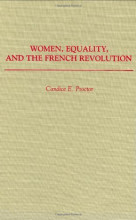
Historian Candice E. Proctor, who is also the mystery author C.S. Harris, discusses attitudes toward women during the French Revolution, and why the leading revolutionaries never gave women any political power, including voting rights. She also writes about some of the women who advocated for women's rights during the French Revolution.
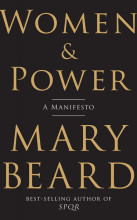
Classicist Mary Beard writes, in two brief essays, about how the voices of powerful women in Western civilization have been suppressed though the years, from ancient times to the present day. She gives examples throughout history, from the ancient Greeks to the present.
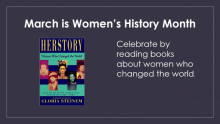
March is Women's History Month. Celebrate by reading books on women who changed the world. This display includes books about women across time and both famous and not-well-known.
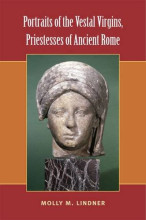
Art historian and University of Michigan graduate Molly M. Lindner discusses the Vestal Virgins, priestesses who were among the most honored women of ancient Rome. At the heart of the book is a catalog of the surviving sculpture portraits of the Vestals. Lindner discusses how the sculptures can tell us more about the Vestals than written evidence can, and she writes about the Vestals' influence on other Roman women.
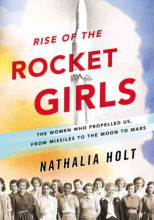
Rise of the Rocket Girls profiles multiple generations of women working at the Jet Propulsion Laboratory from the 1940s to present. The book highlights gender-based challenges as well as scientific ones, and accessibly explains engineering concepts. Readers who loved Hidden Figures will not be disappointed by this book.
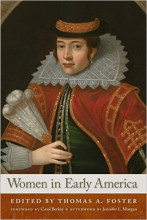
Women in Early America (NYU, 2015), edited by Thomas Foster, is the latest in a line of scholarly histories examining the ways that seventeenth- and eighteenth-century women were actually key players in the economic, cultural, and political life of the American colonies despite the many legal and societal obstacles they had to overcome due to their gender. Most chapters in this wide-ranging work, each written by an expert in the field, focus on specific regions or identities. There is a chapter on the gendering of slave ownership in colonial Jamaica, for example, and another on trade and power in Early French America and Detroit. More familiar topics are also covered, like the connections between witchcraft and resistance to patriarchy or the lives of loyalist women in British-occupied New York City. Our own Mary C. Kelley, Ruth Bordin Collegiate Professor of History, American Culture, and Women's Studies, contributes the final chapter of the book. As in her well-known work Learning to Stand And Speak: Women, Education, And Public Life In America's Republic (UNC, 2006), Kelley discusses the ramifications of a revolution in women’s educational opportunities between the Revolutionary and Civil Wars that enabled many to take up positions in the public sphere as writers, educators, and reformers.
•
Guest author Amanda Cote joins us from the UM Communication Studies department, and is a student working on her Ph.D. in the area of games studies. Feel free to leave comments for her here on the blog.
•
An article hit the New York Times earlier this month discussing the prevalence of sexual harassment in virtual game play. In the article, they highlight several examples online, from a Kickstarter devoted to documenting how women are portrayed in video games to a blog devoted to the unpleasant comments that women often encounter while playing online games. Quoted in the article are also several people who recognize the need to do something about it.
Authored by Joanna Price: Your friendly CVGA intern, here, to tell you about a new and exciting group. The Computer and Video Game Archive is proud to host a Girls' Gaming Group, the 2nd and 4th Thursday evenings of every month, from 6-9 PM at the archive. Beginners welcome! If you're interested, please join our Facebook group.